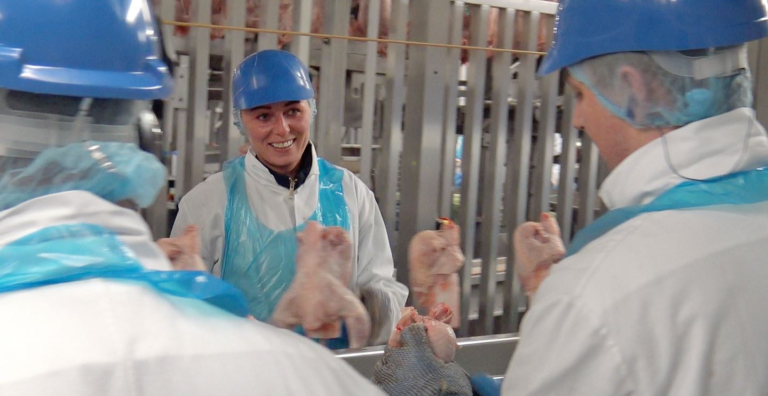The poultry industry in Scotland could become unviable if public policy on coronavirus forces another closure of the Coupar Angus processing plant, James Hook has warned.
The director of PD Hook and Hook2Sisters told Poultry Business his companies had lost more money in August than they had made over the whole of the last decade, and the expenses were unsustainable.
2 Sisters’ Coupar Angus processing plant was closed for two weeks in August due to a cluster of COVID-19 cases among staff.
Hook said the closure had caused chaos on poultry farms in Scotland run by Hook2Sisters, whose birds would normally be processed at Coupar Angus. The plant usually slaughters 850,000 birds per week. No alternative processing facilities exist in Scotland.
The company managed to relocate around 1.1 million birds from Scottish farms to 2 Sisters and Moy Park plants in England, but had to cull around 240,000 birds on farm because there was nowhere for them to go.
The cost of rearing the culled birds, the culling operation, plus expenses for disposal – at £100/kg – ran into millions of pounds, Hook said.
The effects had also been felt on PD Hook’s hatcheries, where the number of eggs placed has been scaled back.
Hook told PB he may be forced to close down his business in Scotland if there were further closures, and said in England the whole of the poultry industry may have to shrink by 10% in order to give processing plants capacity to accept birds from elsewhere in the event of shutdowns.
He said the implications for his companies were “massive” and that without help from the Scottish government, or a change in rules that would allow plants hit by COVID to remain open with a skeleton staff to kill birds, he would have to close down his operations in Scotland because it would be too “difficult and expensive” to weather another plant closure. “It will be impossible for us to keep producing chicken,” said Hook.
Hook said a change in rules was needed across the UK to allow plants hit by COVID to remain open, operating with a minimal crew to continue to kill birds, that could then be sent elsewhere for cutting.
This has been the approach taken at Banham Poultry in Norfolk, where a cluster of 104 cases out of 1,100 staff has forced the business to close its cutting operation, keeping just 45 workers in place to continue killing birds. All other staff have been told to self-isolate for two weeks. Despite this, lack of capacity has meant 300,000 birds have had to be culled and disposed of.
Richard Griffiths, the BPC’s chief executive, said public health concerns must be balanced with other considerations. He said forcing poultry plants to shut down would threaten Britain’s food supply and compromise animal welfare, due to the structure of the industry, with 20 million birds a week slaughtered through a small number of large plants.
Griffiths acknowledged there was a trade off that had to be calculated when considering the closure of plants. “We have to prioritise the health of people in our community, but we also need to safeguard food supply and the welfare of our animals.”
For full coverage of the impact of COVID-19, see next week’s print issue of Poultry Business.


